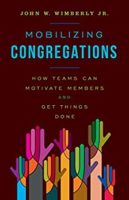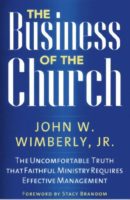Many clergy are leaving or considering leaving ministry. Last March, Barna Research reported that 42 percent of pastors had considered quitting full-time ministry in the past year, compared with 21 percent in January 2021. The Washington Post, Sojourners, NPR, and Christianity Today have all published articles on the phenomenon. Denominations need to understand the reasons for this change and make supporting ministers a top priority.
The departure of so many clergy reflects wider trends in the labor force. Joseph Fuller and William Kerr, writing in the Harvard Business Review, describe the Great Resignation as “the continuation of a long-term trend” marked by “the Five Rs: retirement, relocation, reconsideration, reshuffling, and reluctance.”
“Workers are retiring in greater numbers but are not relocating in large numbers; they’re reconsidering their work-life balance and care roles; they’re making localized switches among industries, or reshuffling, rather than exiting the labor market entirely; and, because of pandemic-related fears, they’re demonstrating a reluctance to return to in-person jobs.”
Reconsidering Vocation
Reconsidering, it seems to me, is the biggest factor for clergy. Younger ones, especially, are reconsidering the balance between work and personal life (why didn’t older generations do the same?). Many more are reconsidering the costs and benefits of ministry in general. The inspiration many of us experienced leading Sunday morning worship is waning as in-person attendance wanes.
I know: numbers should not matter! But they do, especially for clergy who previously experienced significantly larger numbers in worship. As many have told me, “I need to see faces in front of me, not feel online faces I cannot see looking at me through a camera lens. The energy comes from seeing people in person.”
Anger and discouragement
Another big issue causing clergy to question their vocational choice is anger. The same forces destroying national cohesion are destroying congregations’ once-cohesive cultures. Routine discussions now devolve into angry, polarized debates. Pastors and lay leaders receive angry posts and emails about their ministries on social media. Many pastors are asking, “Did I go into the ministry to deal with this? To be attacked like this? Where’s the love? Where is the sense of Christian community?”
For younger clergy, it cannot be encouraging to look out at a small congregation of people most of whom could be their grandparents. When those grandparents refuse to make the changes that could attract younger people, the frustration amps up further. Ministry begins to feel more like chaplaincy at a retirement community, stripped of the joys and challenges of serving a growing, multi-generational congregation.
In many communities, clergy are no longer highly valued. Decades of news stories about clergy abusing children and congregants, living high off the hog while congregants struggle, or committing fraud have taken a huge toll on our public image. When my father stood up at a Rotary meeting in the 1950s and introduced himself as “Rev. Wimberly,” he could assume most people viewed him positively. Today, if I introduce myself to a secular group as “Rev. Wimberly,” people’s view me with indifference or a negative image. So, I rarely introduce myself as “Rev. Wimberly”!
Why Stay?
Okay, so all of this is kind of depressing. Real, but depressing. Most clergy are remaining in ministry—let’s look at why. Here are a few of the thoughts I hear from clergy who plan to remain:
- “I have a call. I had it when I entered the ministry. I still have it today. I feel like God wants me to do what I am doing.”
- “I love my congregation. They have stuck with me when I was going through some tough times such as my divorce. I’m going to stick with them as they go through tough times.”
- “Jumping ship in the middle of a storm doesn’t make a whole lot of sense to me.”
- “I love what I do. I love leading Bible studies, preaching, pastoral care and being a positive influence through community ministry. Where else could I do all the different things I do as a pastor?”
- “My spouse and I have a settled life. Between us, we have enough money to do most of the things we want to do. We have great friendships in this community. People come to us when they need help. And, frankly, with my denominational pension, we’ll be able to continue our lifestyle after we retire.”
The list could go on much longer.
I resonate with both the reasons clergy are staying and why they are leaving. I do not think this is a time for judgment. It is a time for personal and collective discernment. Judging those who stay as “too weak to leave” or those who leave as “bailing ship” is just not helpful. People have a right to make the choices they make.
Help and Support
My primary concern is that we, as the Church Universal, are not providing clergy with a lot of informed, researched, educated help sorting out their vocational choices. Yes, there are more clergy coaches than aspiring authors. But are they the best people to help clergy sort through their feelings and options? A coaching degree does not make one an expert on vocational decision-making and that is what our clergy need. It is a highly skilled niche in the larger market of coaching or counseling.
Without inspired, inspiring clergy leadership, congregations struggle. Denominations need to make the recruitment, training, and lifelong support of clergy leadership their top priority. They should offer highly skilled, experienced counseling for clergy in vocational discernment. Denominations’ top priority today should be supporting clergy through the problems and joys of ministry. Top. Number One.
John Wimberly is an experienced pastor and consultant. As a consultant, he has worked with congregations and judicatories on strategic planning, staff designs for the 21st century, and congregational growth as well as financial and administrative management. He has MBA, MDiv, and PhD (theology) degrees. His books focus on effective management and leadership. John believes congregations can have a bright future!




